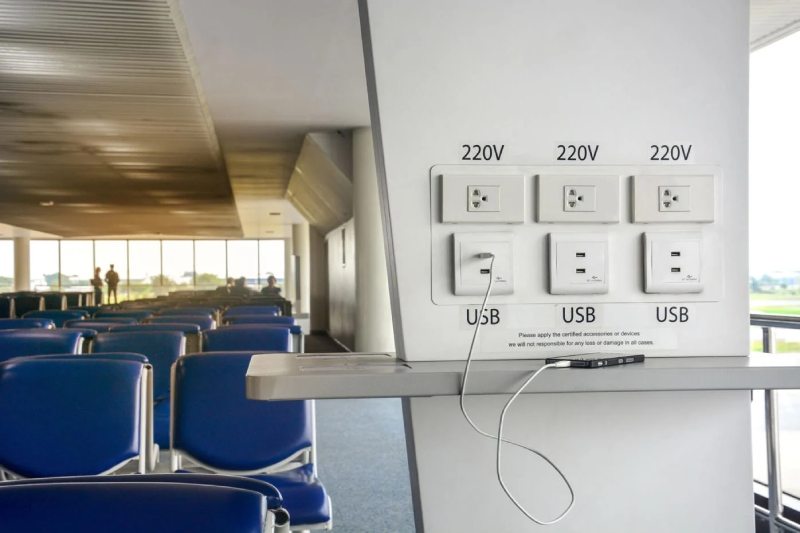Due to a cybersecurity risk, the FBI is advising consumers not to utilize free USB phone chargers that may be found in public areas like malls and airports.
The Baltimore office of the Bureau recently shared on X, the former name for Twitter, about the possibility of hackers accessing your phone and stealing your personal information if you connect to these public ports.
USB ports have two functions, according to Jeremy Straub, head of NDSU’s Cybersecurity Institute and associate professor of computer science: data transfer and power transfer.
The data is the issue when it comes to USB chargers in public areas.
“So you’ll have someone plugging into it thinking they’re only going to get power out of it in a public place, and some nefarious person has gone in there and they’ve inserted something that’s actually using the data lines, too,” Straub explained.
There are several potential risks when connecting to a compromised USB port, including the theft of financial or password information.
“Attackers might be trying to get information off of your device, they might be trying to insert malware onto the device, they might be trying to use the device’s data connection to do something nefarious that they need a way to connect to the internet,” Straub stated.
It might be evident if your device has been compromised, such as by abruptly shutting down.
“You might realize quite quickly that there’s a problem. But what can actually be more problematic is that people do that and they don’t realize there’s a problem because the attackers specifically designed their attack to not show up immediately, “according to Straub.
Rebooting your phone could potentially address the issue if you believe it has been compromised, according to Straub. But you can also see a specialist if you’re very worried.
“If you do a lot of sensitive things on your phone, it might be better to have somebody look at it. Certainly communicating with your cell phone provider, or the device manufacturer, or your corporate IT department, would be a great way to get some additional information on it,” according to Straub.
According to Straub, using a standard power socket with your own charger and power brick—which cannot access data—is a straightforward method of preventing data access.
